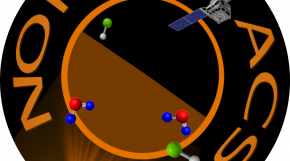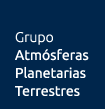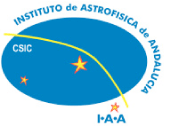NEWS & EVENTS
Interested in what's happening at Atmósferas Planetarias Terrestres research group and other related groups. News and Events are posted here regularly to keep out you updated about what is going on.
In the context of future Venusian missions, it is crucial to improve our understanding of Venus upper atmosphere through 3D modeling, notably for spacecraft orbit computation. A recent study led by our group (Martinez et al., 2026) compares three General Circulation Models (GCMs) of the Venusian atmosphere up to the exosphere: the Venus Planetary Climate Model (Venus PCM), the Venus Thermospheric Global Model (VTGCM) and the Tohoku University GCM (TUGCM), focusing on their nominal simulations (e.g. composition, thermal structure and heating/cooling rates).
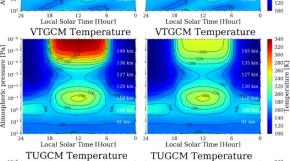
Mars is today an extremely arid planet, whose pressure and temperature conditions prevent liquid water from existing on its surface. However, geological and mineralogical evidence suggests that, in the distant past, the red planet hosted large volumes of water in the form of rivers, lakes, and even oceans. Despite decades of research, one of the great mysteries about Martian history remains unresolved: what happened to all that water?
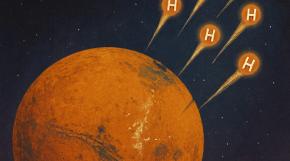
The study, based on data from three instruments of the James Webb Space Telescope, offers new insights into the chemistry and atmosphere of Titan, the densest and most stable of all the moons in the solar system.
Among the findings of the study, in which the Instituto de Astrofísica de Andalucía (IAA-CSIC) is participating, the first direct detection of methyl radical (CH₃) in Titan's atmosphere stands out, confirming key predictions about its organic chemistry.
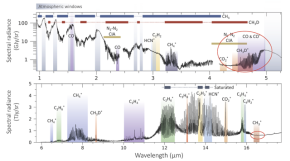
The detection of the He I λ10 830 Å triplet in exoplanet atmospheres has opened a new window for probing planetary properties, including atmospheric escape. Unlike Lyman α, the He triplet is significantly less affected by interstellar medium (ISM) absorption. Sufficient X-ray and extreme ultraviolet (XUV) stellar irradiation may trigger the formation of the He I triplet via photoionization and posterior recombination processes in the planet atmospheres. Only a weak trend between stellar XUV emission and the planetary He I strength has been observed so far.
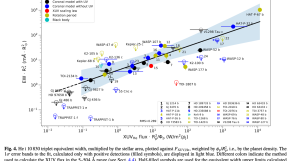
We have completed the analysis of 3 full Mars Years of solar occultation measurements with NOMAD on board the Trace Gas Orbiter (TGO). The data reveal interesting features of the H2O distribution and variability.
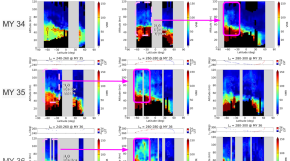
An ISSI project 2023-2025
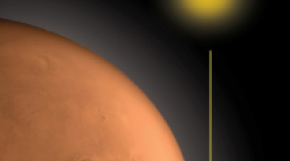
CAIRT, an Earth Explorer 11 candidate mission in which GAPT is involved, has been selected by the European Space Agency as one of the two mission concepts going into Phase A

Analysis of the observations by the CARMENES instrument has provided new insights into the aerosol presence in distant gas giants.
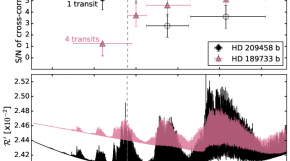
Dr. Bernd Funke, member of the GAPT, was selected as vice-president of SCOSTEP during the last General Assembly of the IUGG held in Berlin:
https://scostep.org/about/governance/bureau-3/

Escape y evolución de la atmósfera de Marte combinando análisis del cociente D/H medido por la misión TGO/Exomars con simulaciones físicas del clima marciano
